27 ways to reduce energy bills if insulation is out of the question
Want to reduce energy bills? Follow these tried and tested ways to reduce energy costs at home, fast

Right now, everyone needs to learn to reduce energy bills. With massive hikes to energy costs this year, most of us will see our bills double. And while the causes of these huge energy price increases may be beyond anyone's individual power to fix, you can reduce some of the burdens of a steep bill by learning to be a bit savvier with how you use energy at home.
Of course, if you are a homeowner, you may look into more long-term energy-saving ideas like extensive insulation, double glazing, or maybe even a carbon-neutral heating system, if you can afford it. However, if large-scale energy-saving projects are currently out of reach either because you don't have the funds or if you rent, rest assured there are several other options that don't require a major home improvement project.
Receiving a lower electric bill could be as simple as switching off appliances when they're not even in use, or looking at alternative ways to generate power or heat. If you grew up in a household that toggled between temperatures on the thermostat (instead of wearing a jumper), just know there are easi(er) ways to reduce electricity bills so that you don't have to sacrifice all creature comforts.
How to lower an electric bill
Of course, there are a couple of no-brainers, some more obvious than others. In an exclusive interview with Real Homes to talk about Grand Designs Live, Kevin McCloud mentioned a few of his personal no-brainers to lower energy usage and therefore, energy bills.
'Simple things we read about, turning our thermostats down, I’m all for.' Of course, this can't apply to everyone but McCloud also highlighted how even if you rent, you can raise the question of installing home insulation with your landlord, 'If you’re renting you could ask your landlord whether you could install insulation in their attic and they might say yes. You could also say can I install temporary secondary glazing and they might say yes. Of course, there’s an outgoing and there’s a cost but there are some great cheap systems out there.'
Meanwhile, here's what you can do right now to mitigate rising energy costs.
1. Submit regular meter readings to your supplier
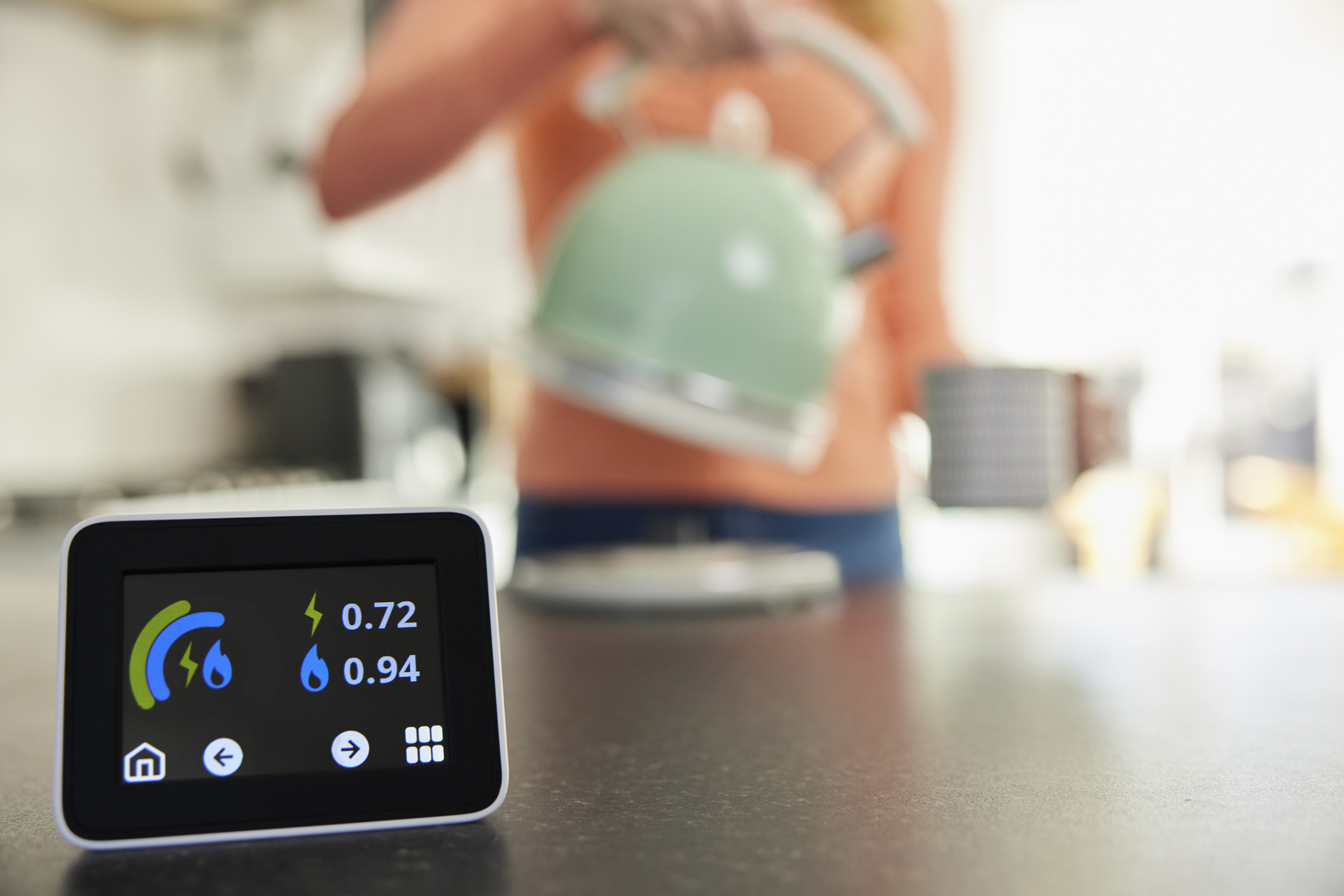
This first and essential step cannot be stressed enough. If you're still getting quarterly estimated bills, you could be overpaying by as much as hundreds a year. Conversely, if you are constantly underpaying for your actual energy usage, you will end up being hit by a huge unexpected bill when you move out of your current home.
Get small space home decor ideas, celeb inspiration, DIY tips and more, straight to your inbox!
So, locate your electric and gas meter and submit regular meter readings, usually every month. It's especially important to take an accurate meter reading right around the time energy prices change so that you don't end up paying more at the higher rate.
Alternatively, by getting a self-reading gas and electricity meter (aka a smart meter), you can monitor your energy usage from the warmth of your kitchen, or wherever you place the device. This makes a lovely change from shining a torch in the shoe cupboard or reaching into an outside meter cupboard where a spider (or two) has set up home.
2. Understand how your bill works
The main thing to understand about bills is that they're calculated using prices per unit (kilowatt) of energy. When energy prices go up, the main thing you need from your supplier is the new price per unit of electricity and gas.
Your previous bills will give you a good idea of how many kilowatts of energy you use every year or every month, so you can begin to work out how much your new bills will be (and whether you can still afford them) using that past data and the new prices per unit.
Fortunately, most suppliers nowadays will provide you with this information on their bill, even advising you if you could save by switching to a better tariff.
3. Massive bill? Reduce electricity use first
If your bill is becoming unsustainable, then you should first look at how to reduce the electric part of the bill. Electricity always costs more than gas – just to give you an idea, electricity prices per unit are four-five times higher than gas.
So, the first thing you should do is cut down on unnecessary electric appliance use. We're not talking about powering the computer you need to do your work or not having the lights on. The fact is that many people have electric appliances that could be either swapped out for energy-efficient alternatives or that may not be necessary.
While an air purifier may not use that much energy if you're also using a dehumidifier, a plug-in essential oil diffuser, a smart TV, a rice maker, a chocolate fountain... You get the drift, it all adds up!
And look out for 'energy vampires'. We're all guilty of it. You take your phone off charge, and leave the charger switched on at the mains. Well, guess what? Even if your smartphone is fully juiced – you're needlessly wasting energy if you haven't unplugged or switched it off from the socket.
The other important thing to try and cut down on is electric heating. If you are renting a place where all heating is electric and moving is an option, we would seriously advise moving somewhere with gas central heating. Even in a home that. lacks insulation it's still the better option. Freestanding electric heaters should also be avoided, particularly the oil-filled type – these use over a kilowatt of energy per hour.
4. Turn down your heating a notch
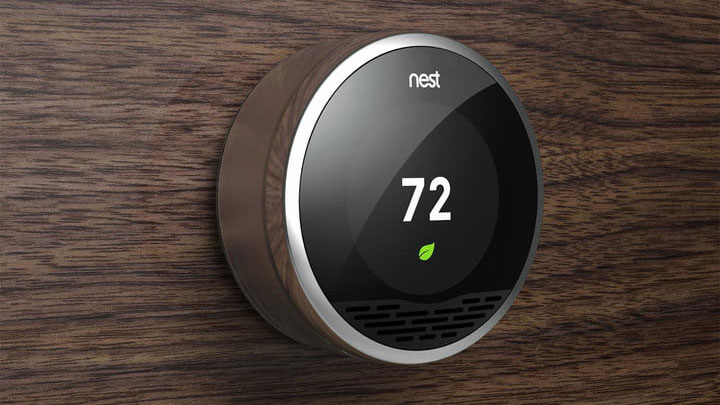
More than half the money spent on fuel bills goes towards providing heating and hot water, according to Energy Saving Trust. And relying on the convenience of a thermostat (more on those further down) is a big part of high energy consumption.
What can you save? Turning down your room thermostat by just one degree can save between £85 and £90 a year.
5. Be conscious of how you use your window treatments

As simple as it sounds, closing your curtains or shutters at dusk will stop heat escaping through your windows – especially important if you live in a period property.
But, even if you own or rent a modern home, you can still take advantage of this window treatment advice.
'With household finances being squeezed across the board, keeping warm, while lowering your costs and protecting the environment has never been more of a priority,' says Yvonne Keal, senior product manager at Hillarys.
'20% of the total heat loss from your home is through your windows, yet most householders never take steps to provide effective insulation for these important features.'
Thankfully, Keal has some top tips for reducing energy bills with the best blinds:
- A thermal lining on curtains will really make a difference but if your window is better suited to a Roman blind, you can improve its insulating properties by opting for interlining which is super soft and seriously snug. Having this extra layer of wadding included will increase the insulation properties of your blind by up to 50% compared to a standard lining.
- Layer your window dressings. This not only gives flexible light control but maximises energy efficiency, especially if you add thermal linings to your curtains and blinds.
- Pleated blinds that incorporate clever honeycomb pockets trap warm air and stop it escaping through your window. British Blind and Shutter Association (BBSA) research has proved that honeycomb blinds can reduce heat loss through single glazed windows by as much as 51%. Think how much that could save you on heating bills.
- Floor to ceiling glazing and roof lights are a key trend in home extensions. While looking great, it can be difficult to maintain a comfortable temperature in these rooms all year round. Combine pleated blinds with honeycomb for the side windows and fit roof blinds that actively reflect heat. So, when it’s hot, you stay cool and when it’s cooler, you stay toasty.
- Window shutters are an excellent way to insulate windows and improve energy efficiency in your home. With a barrier at your window, shutting them on cold evenings will keep chills out and the warmth in. In fact, it has been shown that when closed, shutters can reduce heat loss through a window by more than 50%.
6. Shut down your devices instead of using standby
‘There is a growing black hole in our energy bills because we prefer the convenience of standby,’ warns Philip Sellwood, Energy Saving Trust's chief executive.
According to Energy Saving Trust, you can save around £30 a year just by remembering to turn off your appliances completely, rather than leaving them in standby mode.
Desmond also adds: 'You can be surprised at how much simple things make a huge difference, turning off appliances as opposed to just leaving them on standby can actually slash around 20% off of your energy bills, some of the worst offenders are laptops, games consoles, set-top boxes (like Sky boxes), televisions and even phone chargers.'
'Televisions are probably the biggest culprit here though, especially when you consider how large they are nowadays, even the most efficient 50” television is going to be more expensive to run compared to an inefficient 28” screen.
'Let's take a 50” 4K TV with a G Energy Rating. If the television is being watched for 4 hours a day and being left on standby the rest of the time you’ll pay around 5p per day, you’re also paying roughly 1p while the device is on standby, that’s just over £25 per year on the television alone, if you’ve got a few screens dotted around the house (or if they’re on for longer) the cost racks up pretty quick. You can downsize, however, a 28”, HD Ready TV with an E Rating will only cost around 2p per day, that’s about £8 for the year.
7. Use a timer
Use your timer to schedule your heating and hot water to come on 30 minutes before you get up in the morning and to switch off again when you leave the house. Do the same in the evening when you are due to come home. Invest in a smart meter (keep reading for more on those) with geo-fencing and it will know when you leave and switch the heating off for you.
What can you save? It depends on how often you switch yours off and on... but the savings can be significant.
8. Use your kitchen appliances, sensibly

Doing your washing-up in a filled sink rather than under the tap could save you £30 a year while filling the kettle with the amount of water you need can save £7 a year.
When using a washing machine, try to reduce your use by one cycle per week and save £5 a year on energy and £8 a year on water. Get clued up and weave better habits into your home's routine, if you have access to a dishwasher be sure to check whether using the dishwasher or handwashing will fare best to save money and the planet also.
Want to know more about how much it costs to boil a kettle? One expert spills the tea...
'The kitchen is one of the biggest drains on your electricity, for example, if you’re making a cup of tea or coffee only fill the kettle with the amount of water you need, there’s no need to fill it to the brim as this is just burning excess energy,' says Desmond.
'Most kettles clock in around 2-3kw and electricity usage in the home is measured in kWh (kilowatt hours) which is just the amount of kilowatts used in an hour. Most homes are charged per unit of electricity used and in Ireland currently, the average price is around 20p per unit.'
'So, if you have a kettle that uses around 1kw, it’d need to be powered on for an hour in order to use 1kwh, this would then cost you 20p. If you have a kettle that consumes 2kws then it would use up 2kwh in one hour, this would cost you 40p as you have consumed 2 units. On a small scale, this obviously doesn’t sound a lot (and people don’t leave their kettles on for an hour I hope!) but it really does all add up.'
'When it comes to saving, it’s difficult to pinpoint as everyone uses their kettles differently. But let's say your electricity costs 20p per unit, you’re using a 3kw kettle with a 2 litre capacity. If you’re filling the kettle to the brim every time you’re boiling it’s going to cost you around £35 to run the kettle for the year, so only use what you need.'
9. Go for LED lighting
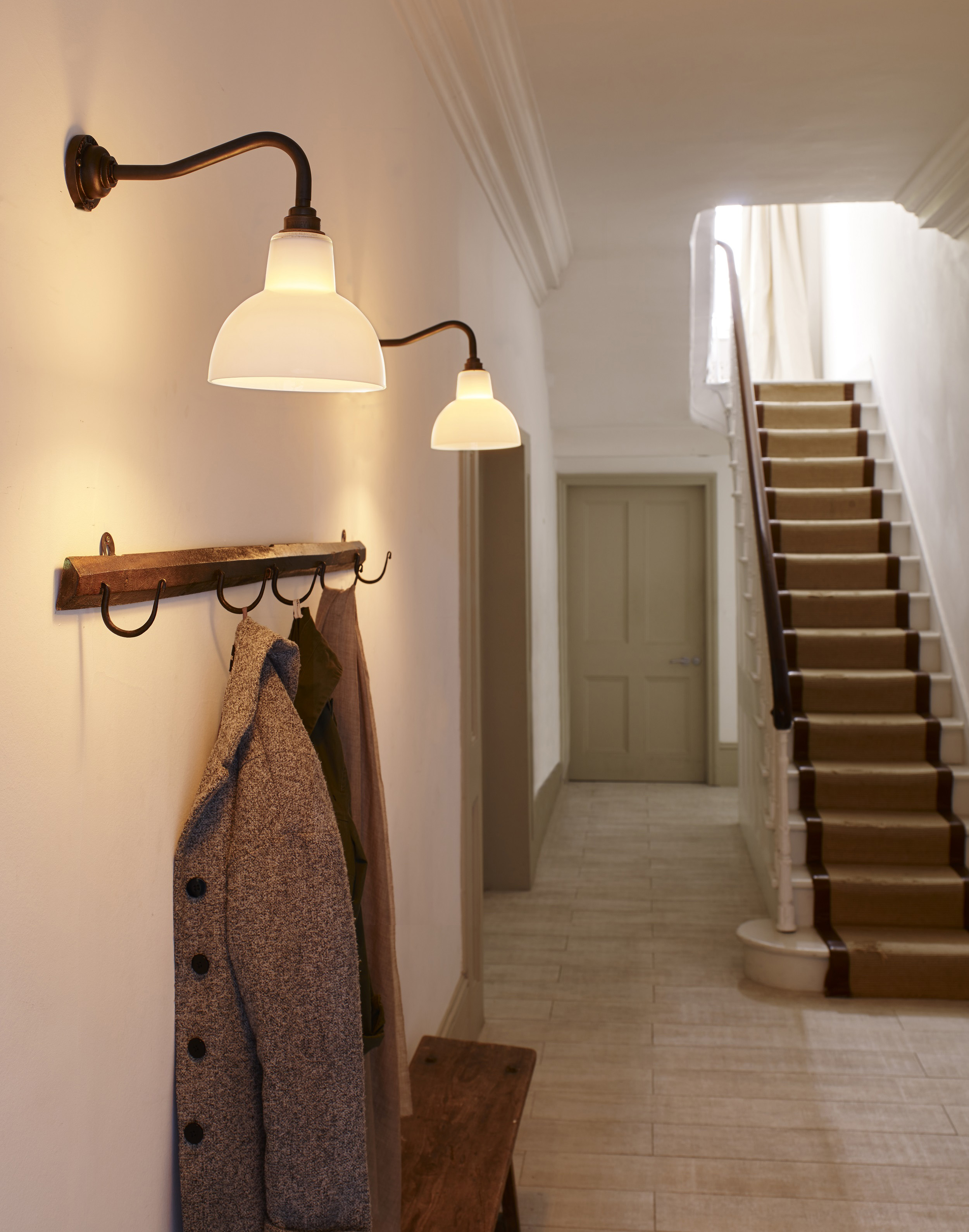
LED lights are the most practical, energy-efficient choice for your home, using up to 90 percent less energy than traditional halogen bulbs. Lighting accounts for around 15 percent of a typical household’s electricity bill, and Energy Saving Trust estimates that switching all your bulbs to LED versions could save you £35 per year.
While the upfront cost of an LED bulb might be more than a comparative halogen bulb, they cost far less to run and last much longer, with LED Hut advising that standard LED bulbs have a lifespan of around 25,000 hours, compared to 3,000 hours for a halogen equivalent.
Most halogen bulbs can simply be switched for an LED version, too, making it easy to upgrade your existing light fittings. LED bulbs from LED Hut start from £3.30 each.
'One of the most expensive mistakes people make is choosing the wrong lightbulbs!' notes electrical expert, Martin Desmond, Wizer Energy.
'LED bulbs are incredibly efficient when compared to older, filament bulbs. LEDs that come with the energy star rating can use 75% less energy in certain cases when compared to incandescent bulbs. There are huge savings to be made here, LED bulbs also last far longer than filament bulbs,'
'Currently, if you’re using a 60-watt bulb for around six hours a day it’ll cost you around £27 per year. By comparison, an LED bulb which gives off the same amount of light only requires around 8.5 watts, which leaves you with a yearly cost of only £4 that’s a huge saving.'
10. Stop the drips
A dripping hot water tap can waste enough energy in a week to fill half a bath, so get any leaks fixed by a pro or learn how to fix a dripping tap yourself.
What can you save? It won't be much but over time it'll add up.
11. Ditch the dryer
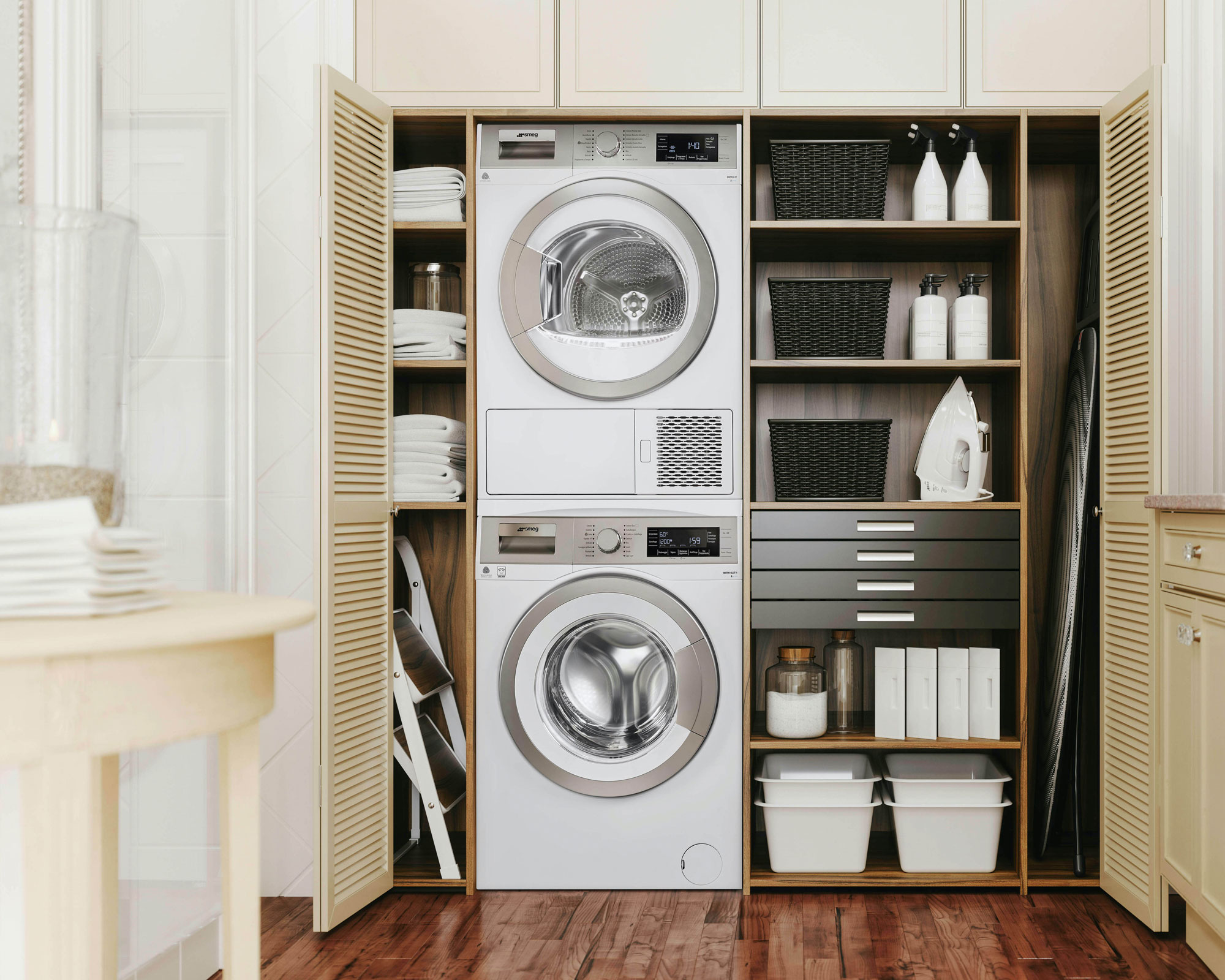
Tumble dryers may be convenient but they use around £100 of energy a year and there are loads of ways to dry clothes without a dryer like air-drying on a rack or airing ladder instead. Or switch to a dehumidifier (see our pick of the best), which is cheaper to run.
'We all know by now that dryers just burn electricity – An A+ rated 9kg dryer costs around 35p per cycle when full, if you’re running two cycles per week you’re looking at around £40 to run the machine for the year,' says Desmond.
If you’ve got an older or cheaper model (the kinds that are commonly found in rental properties) these costs can more than double – a C Rated dryer costs around 75p per cycle, meaning a yearly cost of around £85. Our advice is to cut down on the usage of these dryers as much as possible, even if just for the summer months. You’ll see a big difference in the bills!'
12. Make sure your washing machine is full
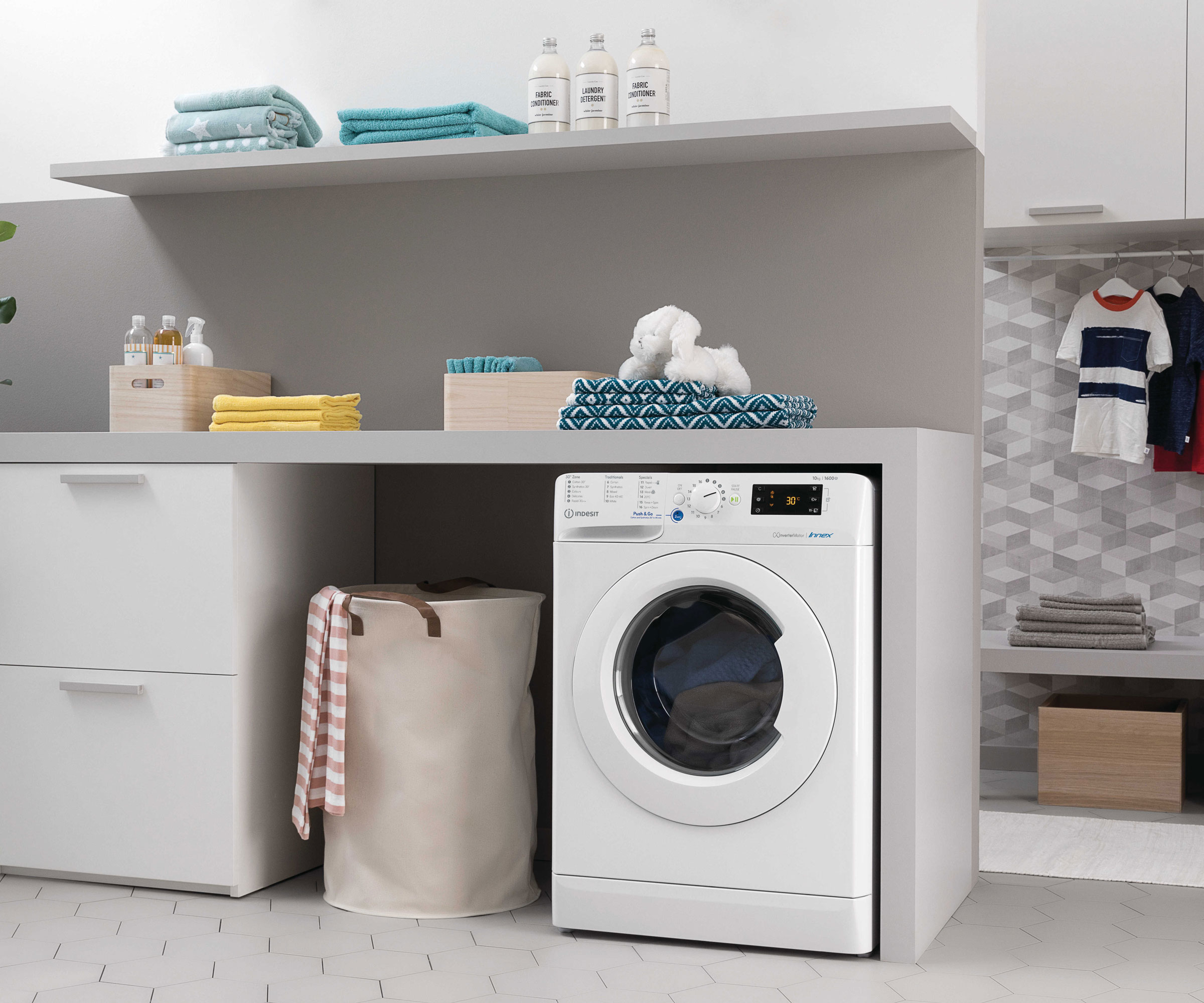
Filling up your washing machine to capacity will help lower your electric bill over time. In fact, one full load of your washing machine, tumble dryer, or dishwasher uses less energy than two half loads.
What will you save? £££s over time, depending on how much laundry you do.
13. The same goes for your dishwasher
The best dishwashers are high energy-efficient appliances, particularly if run on the 'eco' cycle. However, even the most energy-efficient dishwasher is no longer so very efficient if you keep running it at half-loads. Wait until your dishwasher is full and only run it then. A typical dishwasher cycle will use 1.5 kilowatt of energy, whether it's full or only has a couple of cups in it, so make it count.
14. Draught-proof your home
Preventing heat escaping from your home is essential to minimise energy bills, so look out for any unwanted gaps that could allow warm air out, draught-proofing doors, including keyholes and letterboxes plus, spaces between floorboards, gaps around loft hatches and open fireplaces.
Most basic draught-proofing products can be fitted on a DIY basis, and simple solutions include self-adhesive sealant strips for use around the edges of windows, doors and loft hatches; the addition of letterbox plates and keyhole covers; draught excluders for the bottom of doors (widely available at Amazon); flexible fillers for use between floorboards; and chimney balloons, which can be inflated within an open fireplace when it’s not in use to stop warm air escaping up the chimney.
What will you save? Draught-proofing doors and windows can save around £25 per year.
15. Upgrade your boiler
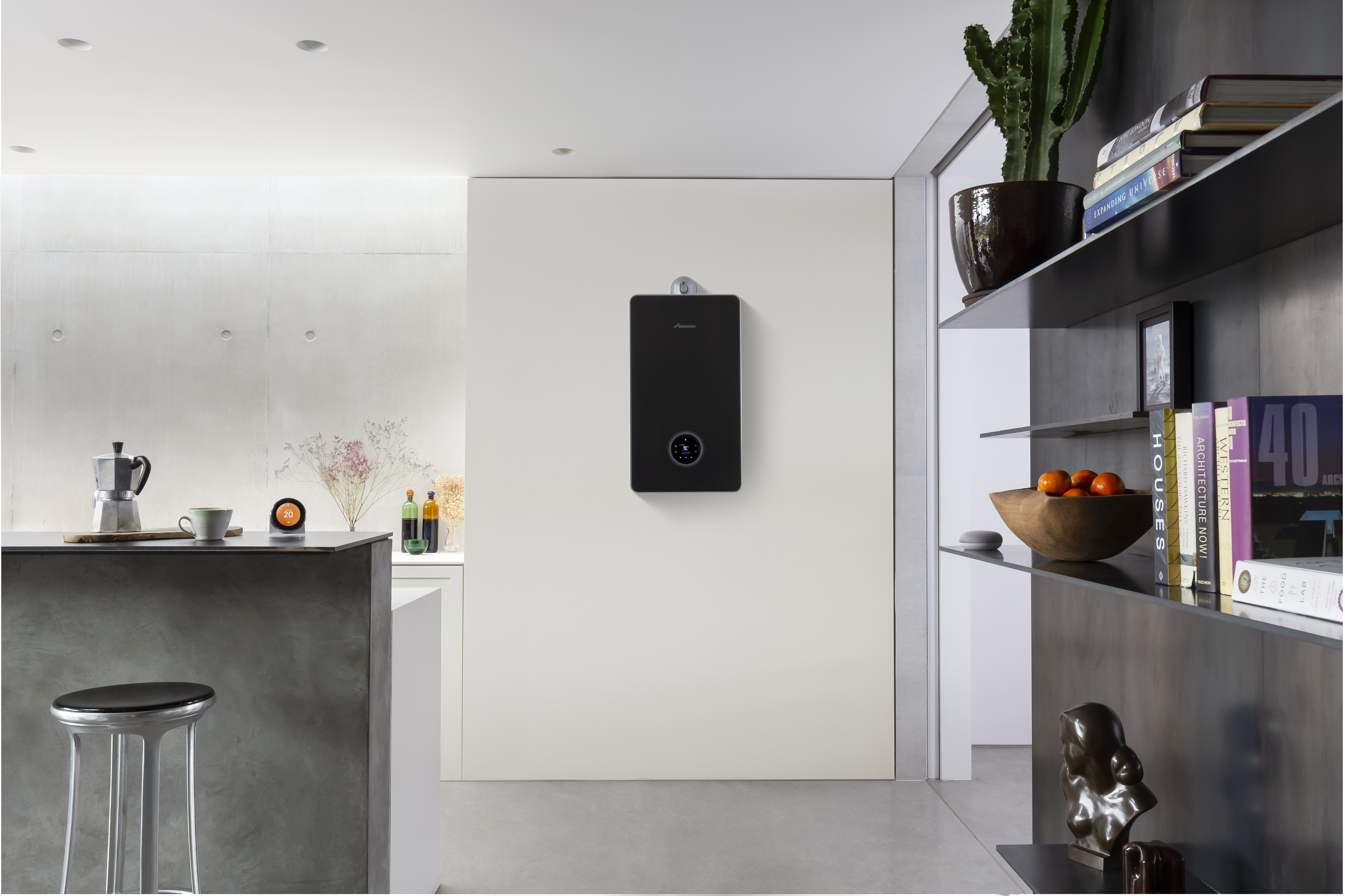
A boiler that is 15 or more years old is likely to be around 70 percent efficient, meaning that for every pound spent on fuel, 30p is wasted. ‘Older boilers are also likely to have a standing pilot light, which could cost in the region of £50 to 60 per year just to keep going,’ explains Martyn Bridges, from Worcester Bosch.
‘Updating your heating system to an A-rated condensing boiler could make your system more than 90 percent efficient. Add weather – and load-compensating control and you could see a further four percent of savings.’
It’s also important to install and use the correct controls for your heating system as this will ensure it doesn’t have to work any harder than it needs to, which will make it as efficient as possible.
Worcester Bosch’s Greenstar CDi Compact Combi Boiler is suitable for properties of all sizes with one or two bathrooms. You can expect to pay around £2,500, including installation, depending on the size of the property, location and the work involved.
What will you save? According to Worcester Bosch, upgrading to a high-efficiency condensing boiler with appropriate controls could cut your energy bills by around £235 and save over one tonne of CO2 each year.
If you rent, you should always take careful note of the make and model of the boiler before you move into a place. If it's very old, don't move in unless the landlord agrees (in writing) to replace the boiler before you move in. It is very difficult to convince a landlord to do this if it hasn't broken down and is merely inefficient.
16. Choose efficient appliances

From dishwashers and fridge-freezers to washing machines and tumble dryers, the number of appliances we use in our homes on a daily basis contributes a significant amount to our overall energy bills. According to Which? fridge-freezers account for around 20 percent of the electricity used in our home, making them the biggest contributor to energy bills after heating.
All new electrical appliances need to display a ‘traffic light’ energy efficiency rating label, showing dark green (A+++ rated) as the most efficient, and red products as the least efficient, so look at these carefully when choosing your new appliance. The label also shows the annual energy consumption for the product in kWh, making it even easier to compare the efficiency of different designs.
Ie: The HB18FGSAAA French Door Fridge Freezer has an energy efficiency rating of A+++ so makes a great pick to save cash on electric bills.
Desmond advises that maintaining your appliance and organizing your freezer can achieve cool savings each month.
He says: 'Look after your fridge/freezer! Check the coils at the back of your unit and keep them free from dirt and debris, ideally, they should be about 10cm from the wall to ensure the best possible energy efficiency results,'
'If the coils are all blocked with dirt they cannot efficiently release heat, which means the fridge's compressor has to work far harder and longer which ups the cost and shortens the lifespan.'
'If your coils are dirty you can expect to see savings of around 11% when you clear the dirt. Try to keep the temperature of your fridge around 3 degrees Celsius with the freezer at around -17, maintain this steady temperature to optimize performance. Also, pack the freezer! It takes far more energy to freeze items in an empty freezer rather than a full one.'
17. Opt for low-flow taps
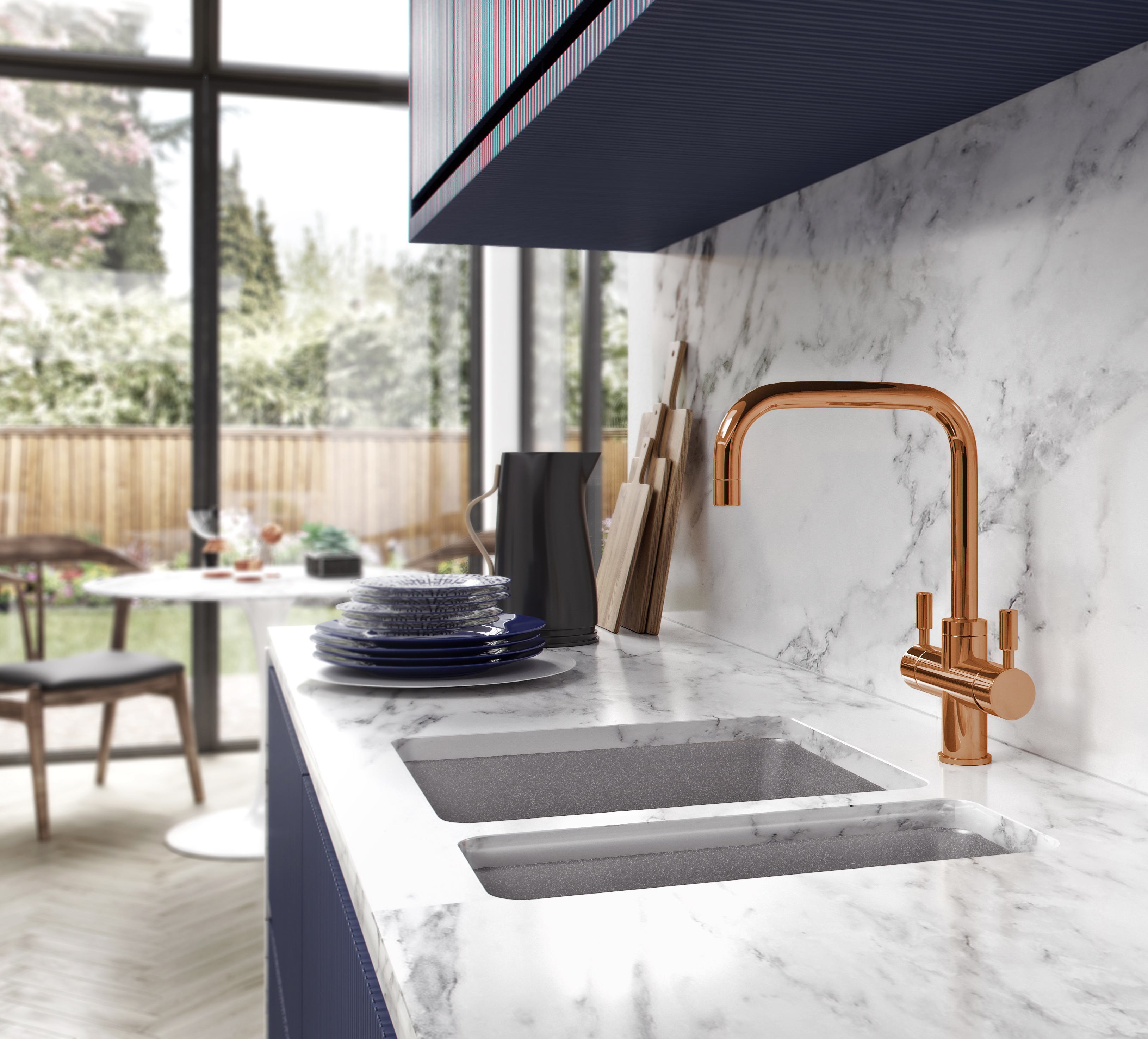
When you consider that around 15 per cent of a typical home’s energy bill is a result of heating the water for showers and taps, reducing your water usage is always a good idea – especially if you’re on a water meter.
Consider retrofitting flow limiters to your existing taps (try the Tapstore for a range of products), and, when choosing a new shower or taps, look out for designs that come with a built-in flow limiter. The best high-pressure shower heads and taps that automatically enrich the water with thousands of air bubbles are also a clever solution, creating the feel of a fast flow rate while actually using far less water.
McCloud adds, 'Anything we can do to reduce the cost of heating our homes when I say heating that includes water as well, that’s secondary. Getting hot water out of the tap requires energy.' Noting how 'Even turning the bathroom tap off while you’re brushing your teeth, which is important,' can help reduce energy costs.
The Mike Pro basin tap from Crosswater is fitted with flow regulators, giving a flow rate of just three litres per minute.
What will you save? According to Energy Saving Trust, if you’re a family of four and swap an inefficient shower head for a water-efficient one, you could knock around £75 off your gas bills and around £120 off your water bills (if you have a water meter) each year, giving you a potential total saving of around £195.
18. Use smart heating controls

Unlike smart meters, which simply monitor and report on energy used, smart thermostats (see our buyer's guide for the best buys) can intelligently assess how much energy a home is using and make automatic changes to help reduce this. They can learn how warm you like your home and assess how to reach this temperature efficiently, and will also turn off the heating when you leave the house so it isn’t being heated unnecessarily. As the thermostats can be controlled by your smartphone, you can access your heating controls remotely, giving you greater flexibility on how you program your heating.
The Nest Learning thermostat costs from £219 (£269 with professional installation).
What will you save? According to Nest, using one of its Learning Thermostats can result in annual savings of up to £353.
19. Switch energy supplier
Shopping around for the best energy tariff to suit your needs and switching energy suppliers can be an effective way to reduce your bills. Compare energy prices from various suppliers to find the cheapest option – the easiest way to do this is using one of the many price comparison websites, such as uSwitch, Money Supermarket and Compare the Market, and GoCompare.
You’ll need to decide if you want a flexible deal that you can leave at any date; or a fixed-rate option, where you sign up for a specific period. Or perhaps you’re simply after the cheapest current deal available at the time. Once you’ve changed your supplier and set up your new plan, it’s worth checking out different energy deals every year to make sure that you’re not losing out. If you’re set up on a fixed plan, then note down the end date so that you can start shopping around a couple of months beforehand to try to find a better deal.
Providing you’re not on a fixed-term deal, there shouldn’t be an exit fee to leave your existing contract but always check with your current supplier to make sure. Rules from energy watchdog Ofgem state that if you leave your contract 49 days or less before it’s due to end, then your provider can’t charge you.
What will you save? How much you save will depend on your current deal, but Claire Osborne, an energy expert at uSwitch, advises that you could save up to as much as £618 by switching to a better deal.
20. Only heat the rooms you're using
Installing a smart thermostat is one step toward saving on energy bills, but if you live in a large house with many rooms, we advise investing in thermostatic radiator valves in every room, so that you can turn up the heating only in the rooms you are using.
What will you save? The Energy Saving Trust says that this move could save you £75 a year in the long run.
21. Add rugs to your rooms

Investing in a couple of the best rugs is a great way to save on energy bills in the long term if you have hard flooring, be it laminate, reclaimed, or engineered wood flooring.
These are always colder than carpeted floors, whereas textiles are great at trapping and retaining heat. Larger rugs will be more effective as they cover more of the floor surface.
'Rugs can accompany all hard flooring and even carpets alike for an extra layer or insulation, helping to reduce bills during the colder months. Carpet fibers are natural insulators and are low heat conduction. The fibers are also good at trapping air and increasing insulation so are ideal for all over the home. A rug will also reduce noise, warm up your space and add comfort to any space,' says Punam Chada, buyer, Carpetright.
22. Swap portable heaters for keeping yourself warmer
The vast majority of portable heaters are not energy-efficient. This especially applies to fan-based and select indoor heaters. If you have to have a portable heater on – say, you work in a part of the house that doesn't have central heating – go for a low-energy infrared heater. Infrared heaters heat you rather than the air around you and are much cheaper to run.
Alternatively, invest in a heated blanket for yourself – these again heat you rather than the surrounding air and can cost as little as 4p an hour to run. McCloud adds, 'There’s a very basic principle here, if you insulate the person, the human being, you then need to insulate the house less. I say this to everybody I speak to.'
23. Bleed radiators regularly and check your heating system
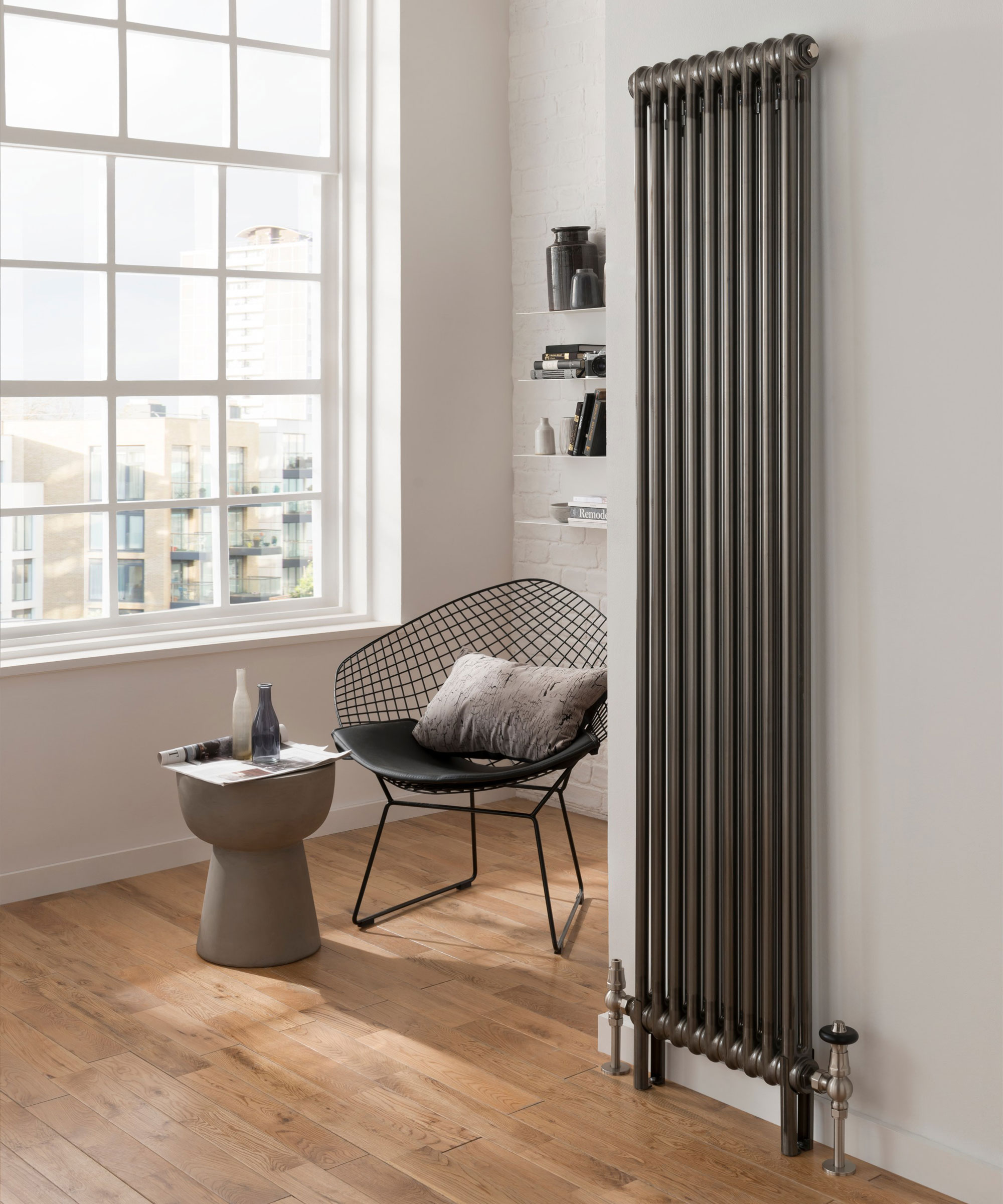
If you've never done this, learn how to bleed radiators right now – it will save you money. When radiators have air trapped in them, they don't heat up evenly, and the whole central heating system doesn't work as well as it should. If you've noticed that one of them is partially cold, it's time to bleed your rad. Don't worry, you can do this yourself, and learn how your radiators work without calling out a professional plumber.
And, while you're getting in the Super Mario mood, Simon Morris, marketing manager, The Radiator Company shares his advice on keeping your room heaters in check.
He says: 'The single most important thing everyone should do is make sure their heating system has an inhibitor added to the water. This can be checked, and topped up, by a plumber at an annual service. An inhibitor helps to reduce corrosion and keep sludge from building up in the system. If left untreated, these can severely reduce efficiency, damage your boiler and cost you money to fix.'
'Heating systems need to be serviced every year. This helps to keep everything working smoothly and safely and will help your radiators to have their longest possible life.'
24. Get your heating system rebalanced
If, on the other hand, you are noticing that some of your radiators are perfectly hot and others are just lukewarm, you may need to rebalance your heating system.
James Clark, technical training manager at Wiser, recommends 'getting your installer to lower the flow temperature to around 55ºC and to balance the heating system. It is advised that this is done by a heating engineer as there are other factors to consider. If not done correctly, homeowners are likely to find that the radiators furthest from the boiler do not heat up to the desired temperature.'
25. Seal any cracks
While proper insulation might feel impossible, a little acrylic goes a long way to seal any draughty cracks and crevices. Using something like UniBond's indoor fill and repair in damaged walls, window seals and doors is a cheap and easy project that you can add to your weekend DIY list.
What can you save? DIY draught-proofing of windows, doors and blocking cracks in floors and skirting boards can save up to £25 to £35 a year on energy bills.
26. Struggling to pay your bill? Speak to your supplier
Even if you are doing the best you can to reduce energy bills, you may still find yourself in a situation where you're struggling to pay your bill, especially during a cold winter. If this is the case, speak to your energy supplier as soon as you can.
Many are understanding, especially with the current high energy prices, and could agree to a different payment plan or a temporary delay to you paying your bill. Ultimately, this isn't your bill being cancelled and you will still need to pay it, but it's always better to come to some kind of an agreement rather than just not paying your bill.
27. Check if you qualify for help
Some UK council bands may be entitled to a one-off energy rebate payment. Even if you are in a higher council tax band and are still struggling to pay your bill, you could still qualify for a discretionary payment. You'll need to speak to your council to see if you qualify.
Why is my electric bill so high?
In most cases, this will due to the fact that you're using old appliances. This is especially problematic with old washing machines, dryers, ovens, and dishwashers. All of these appliances have come a long way, with newer models consuming much less energy.
If you are a renter, then noting what appliances the apartment or house has should be on your list of things to check before going ahead with a rental contract. It may not seem important when you're thinking about the overall look and feel of a home, but the quality and age of the appliances that come with the place will have a huge impact on your bills. Oh, and a quick read of our rental guide will have you clued up on leasing a home.
Energy-saving myths: the 'hacks' that don't help you reduce your bill
It is understandable that when we're worried about bills we'll try almost anything, but there are several 'energy-saving' tips that actually don't do anything and aren't worth your time or the hassle. Consumer champion at energyhelpline.com Tashema Jackson debunks the most persistent energy-saving myths:
- Placing foil behind your radiator: does nothing. 'Reflective panels can work to conserve energy by bouncing heat back into the room; however, this only really works for external walls as they prevent heat from escaping outside.'
- A smart meter 'will not in itself save energy or reduce costs. However, by having a smart meter installed you see how much energy you’re using and therefore identify how to lower your usage by changing day-to-day behaviour.'
- Turning off hot water when you're not using it: 'There really isn’t any saving to be had by turning your hot water on and off. It’s better to make sure that your boiler tank has a good insulating jacket so that the water doesn’t require reheating. '
Anna is a professional writer with many years of experience. She has a passion for contemporary home decor and gardening. She covers a range of topics, from practical advice to interior and garden design.
- Christina ChrysostomouFormer acting head ecommerce editor
- Camille Dubuis-WelchFormer Deputy Editor